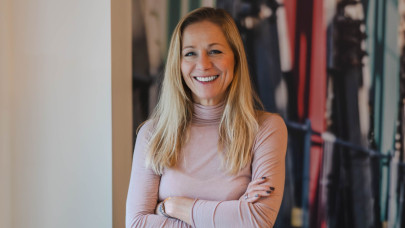The funding for this latest programme is part of the €500 million support package for European farmers presented by the Commission in 2015, which represented a substantial response by the Commission to support European farmers. It will be used to buy milk which should originate in the EU.
As well as supporting European farmers through the purchase of drinking milk, the €30 million programme will also contribute significantly to the major challenge posed to the EU by the refugee crisis. The milk will be distributed to Syrian children and will reinforce an already operating food distribution programme for school children financed by the EU in Syria.
"This new programme will help hundreds of thousands of Syrian children in need. We must remain committed to helping the most vulnerable victims of the conflict. This additional support will go to humanitarian partner organisations working in the country." said EU Commissioner for Humanitarian Aid and Crisis Management, Christos Stylianides.
The milk provided will be of EU origin and is part of the Commission's €500 million solidarity package to European farmers presented in September 2015, where €30 million was earmarked to address the needs of vulnerable groups in third countries, in the context of the current refugee crisis.
EU Commissioner for Agriculture and Rural Development, Phil Hogan, also said: "I am pleased that the Commission has today adopted this programme, which is an integral part of the Commission's €500 million support package for European farmers. This new programme delivers on two Commission priorities – to support farmers at a very difficult time, while also ensuring that we remain fully focused on the major challenge posed by the ongoing refugee crisis."
The conflict in Syria had a severe impact on the agriculture sector of the country, leading to a decline in food production, in particular of dairy products. Consumption of milk has been significantly reduced especially amongst poor households due to high food prices. Syrian families typically consumed milk and other dairy products on a daily basis prior to the crisis. At present, milk has in some cases completely disappeared from their diet.
Besides being the type of dairy product that better suits the food and nutrition needs of the people that will benefit from this programme, the treatment of drinking milk makes it suitable for human consumption over a long period and allows for its consumption on a stand alone basis, without there being a need to add water (the quality of which cannot always be guaranteed up to the required standard in all parts of the intended areas of intervention).
Background
The EU is the leading donor in the international response to the Syrian crisis, with over €5.5 billion from the EU and Member States collectively in humanitarian, development, economic and stabilisation assistance. At the “Supporting Syria & the Region” conference on 4 February in London, the European Union and its Member States pledged to provide over €3 billion in 2016 to assist people affected by the fighting in Syria throughout wider region.
The milk package is therefore a one-off addition to the already substantial EU funded humanitarian aid delivered to those in need.
EU humanitarian aid
Inside Syria, thanks to lifesaving aid provided by the Commission, some 2 million people have gained access to safe water, sanitation and hygiene items, 850 000 people have received food, 1 million people have received non-food items and shelter, and 350 000 children have been covered by child protection programmes.
In Jordan, the Commission's humanitarian aid is helping more than 350.000 Syrian refugees.
In Lebanon, through its partners, the EU's humanitarian aid reaches around 665.000 people.
In Turkey, EU humanitarian aid is funding the provisions of food, health assistance and protection through humanitarian partners and is now being channelled to the Facility for Refugees in Turkey. On 4 March 2016, the EU announced €40 million in humanitarian aid through the World Food Programme (WFP) working in close cooperation with the Turkish Red Crescent as part of the first allocation to the Facility.
The EU's humanitarian aid is impartial and independent and goes to people in need regardless of ethnic or religious considerations.
For more information:
MEMO/16/1106 : Q&A: EU to provide milk to 350,000 children in Syria
http://ec.europa.eu/echo/files/downloads/Commission_Decision_Dairy_products.pdf
Commission implementing decision on financing the sitribution of dairy products as part of the response to humanitarian crises from the general budget of the European Union.
Source: europa.eu







